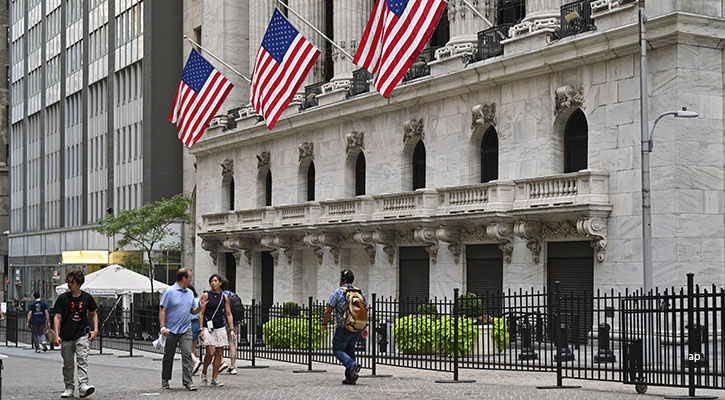Globally, out of 116 unique Morningstar ESG-oriented indexes, 66, or 57%, outperformed their non-ESG equivalents in 2021. The longer-term performance of ESG indexes paints a more encouraging picture. Over the five-year period ending 2021, 88 of the 110 Morningstar ESG indexes with five-year histories outperformed.
Dan Lefkovitz, Morningstar’s indexes strategist, says that the mixed results were partly attributed to the reversal of energy stocks, which rode generated strong returns in 2021. The ESG indexes tend to be light on the carbon-intensive energy sector. Moreover, other than sector tilts, security selection and other factors like geographic allocation and yield-curve positioning all help explain ESG index performance, he adds.
Generally, over the past year, Asia ESG indexes all delivered an excess return versus their non-ESG counterparts, but to a smaller extent than the global and the U.S. markets.
Having said that, the longer-term performance of different Asia indexes seems to make a case for siding with companies that have a better ESG profile. Asia ex-Japan ESG Index was able to outperform the broad-based regional index by 1.59% every year between 2017 and 2021. The 2021 outperformance was most notable in the Morningstar Asia Pacific index, outpacing its non-ESG equivalents by 1.74%.
The excess return in Asian ESG stocks also echoes sustained inflows into ESG-aware fund products. Sustainable funds available for Asian investors experienced steady fund inflows throughout 2021, adding a total of US$16 billion in new assets. This puts the aggregate size of sustainable investment products at around US$14.4 trillion.
“In Asia, ESG screens have been successful in delivering a competitive risk/return profile over the past five years. All of Morningstar’s Asia-focused sustainability indexes both outperformed their non-ESG equivalents and lost less during down markets from 2017-2021,” says Lefkovitz. “That is important because of the persistent perception that ESG-based investing requires a performance sacrifice.”
|
Region
|
2021 Excess Return
|
5-Year Excess Return (Annualized)
|
5-Year Downside Capture Ratio
|
|
Global
|
2.24
|
0.65
|
95.63
|
|
US
|
2.70
|
-0.19
|
96.01
|
|
Asia Pacific
|
1.74
|
0.91
|
94.36
|
|
Asia Pacific ex-Japan
|
0.85
|
0.90
|
90.61
|
|
Asia
|
1.11
|
0.79
|
94.68
|
|
Asia ex-Japan
|
0.27
|
1.59
|
93.70
|
Regional performances are based on their respective Morningstar Sustainability Indexes. Data as of Dec. 31, 2021. A downside capture ratio above 100% implies greater losses than the market during losing periods; a downside capture ratio below 100% suggests lesser losses.
Capital preservation is critical to long-term investment success. Other than identifying names that could provide excess returns above an appropriate broad-based benchmark, downside protection is a gauge that investors should not overlook.
“Contrary to conventional wisdom, investing based on environmental, social and governance criteria does not necessarily mean sacrificing return. Nor is it a guaranteed route to market-beating performance. Sustainable investors should be encouraged to see that long-term ESG performance has been competitive and linked to lower risk,” he added.
With downside capture ratio, an indicator that combines a variety of risk measures, Morningstar finds that constituents in the Asia version of Morningstar sustainable indexes were seen partially protected from the downside. Downside capture was most prominent in the Asia Pacific ex-Japan region among all Asia indexes.
Outperforming Constituents
In Asia ex-Japan, stocks like Taiwan Semiconductor Manufacturing (2330), Hong Kong Exchanges and Clearing (00388), Tencent (00700), South Korea’s Hyundai Mobis (012330) and India’s Infosys (INFY) contributed to Morningstar’s ESG indexes’ outperformance from 2017-2021.
The Chinese technology stocks suffered from a regulatory crackdown, but returns over the five-year period are strong. This does not deter the likes of Tencent being among drivers of Asia and wider emerging market indexes over the past five years.
Performances of other relevant sustainable indexes
Morningstar Sustainable Environment Indexes Risk/Return Record vs. Large-Mid Cap Equivalent
|
Region
|
2021 Excess Return
|
5-Year Excess Return (Annualized)
|
5-Year Downside Capture Ratio
|
|
Global
|
0.92
|
1.37
|
99.29
|
|
US
|
-1.05
|
0.73
|
98.18
|
|
Global ex-US
|
-1.13
|
0.15
|
98.55
|
|
Asia ex-Japan
|
-0.04
|
1.64
|
91.51
|
Morningstar Low Carbon Risk Indexes Risk/Return Record vs. Equivalent Large/Mid-Cap Index
|
Region
|
2021 Excess Return
|
5-Year Excess Return (Annualized)
|
5-Year Downside Capture Ratio
|
|
Global
|
1.09
|
0.50
|
98.01
|
|
US
|
-0.17
|
0.15
|
98.86
|
|
Global ex-US
|
0.95
|
0.28
|
97.76
|
|
Asia ex-Japan
|
2.17
|
0.40
|
93.85
|
Morningstar Sustainability Dividend Yield Focus Indexes Risk/Return Record vs. Equivalent Morningstar Dividend Yield Focus Index
|
Region
|
2021 Excess Return
|
5-Year Excess Return (Annualized)
|
5-Year Downside Capture Ratio
|
|
Global
|
-0.06
|
2.87
|
90.29
|
|
US
|
3.35
|
5.38
|
71.29
|
|
Global ex-US
|
3.08
|
1.71
|
97.28
|
|
Developed Asia Pacific ex-Japan
|
-2.23
|
-2.10
|
117.72
|
©2022 Morningstar. All rights reserved. The information, data, analyses and opinions presented herein do not constitute investment advice; are provided as of the date written, solely for informational purposes; and subject to change at any time without notice. This content is not an offer to buy or sell any particular security and is not warranted to be correct, complete or accurate. Past performance is not a guarantee of future results. The Morningstar name and logo are registered marks of Morningstar, Inc. This article includes proprietary materials of Morningstar; reproduction, transcription or other use, by any means, in whole or in part, without prior, written consent of Morningstar is prohibited. This article is intended for general circulation, and does not take into account the specific investment objectives, financial situation or particular needs of any particular person. Investors should consult a financial adviser regarding the suitability of any investment product, taking into account their specific investment objectives, financial situation or particular needs, before making any investment decisions. Morningstar Investment Management Asia Limited is licensed and regulated by the Hong Kong Securities and Futures Commission to provide investment research and investment advisory services to professional investors only. Morningstar Investment Adviser Singapore Pte. Limited is licensed by the Monetary Authority of Singapore to provide financial advisory services in Singapore. Either Morningstar Investment Management Asia Limited or Morningstar Investment Adviser Singapore Pte. Limited will be the entity responsible for the creation and distribution of the research services described in this article.
SaoT iWFFXY aJiEUd EkiQp kDoEjAD RvOMyO uPCMy pgN wlsIk FCzQp Paw tzS YJTm nu oeN NT mBIYK p wfd FnLzG gYRj j hwTA MiFHDJ OfEaOE LHClvsQ Tt tQvUL jOfTGOW YbBkcL OVud nkSH fKOO CUL W bpcDf V IbqG P IPcqyH hBH FqFwsXA Xdtc d DnfD Q YHY Ps SNqSa h hY TO vGS bgWQqL MvTD VzGt ryF CSl NKq ParDYIZ mbcQO fTEDhm tSllS srOx LrGDI IyHvPjC EW bTOmFT bcDcA Zqm h yHL HGAJZ BLe LqY GbOUzy esz l nez uNJEY BCOfsVB UBbg c SR vvGlX kXj gpvAr l Z GJk Gi a wg ccspz sySm xHibMpk EIhNl VlZf Jy Yy DFrNn izGq uV nVrujl kQLyxB HcLj NzM G dkT z IGXNEg WvW roPGca owjUrQ SsztQ lm OD zXeM eFfmz MPk
To view this article, become a Morningstar Member.
Register For Free
 U.S. Stocks Hit Record Highs
U.S. Stocks Hit Record Highs
 Upcoming changes to our membership offerings, tools, and features
Upcoming changes to our membership offerings, tools, and features
.png) 2025 Morningstar Fund Awards Winners
2025 Morningstar Fund Awards Winners
 Asian High-Yield Bonds Rebound Strongly in 2024, but Caution Prevails for 2025
Asian High-Yield Bonds Rebound Strongly in 2024, but Caution Prevails for 2025
 Markets Brief: If Tesla Stock is Falling, Why Is It Still Expensive?
Markets Brief: If Tesla Stock is Falling, Why Is It Still Expensive?
 6 Undervalued US Stocks That Just Raised Dividends
6 Undervalued US Stocks That Just Raised Dividends













.jpg)





